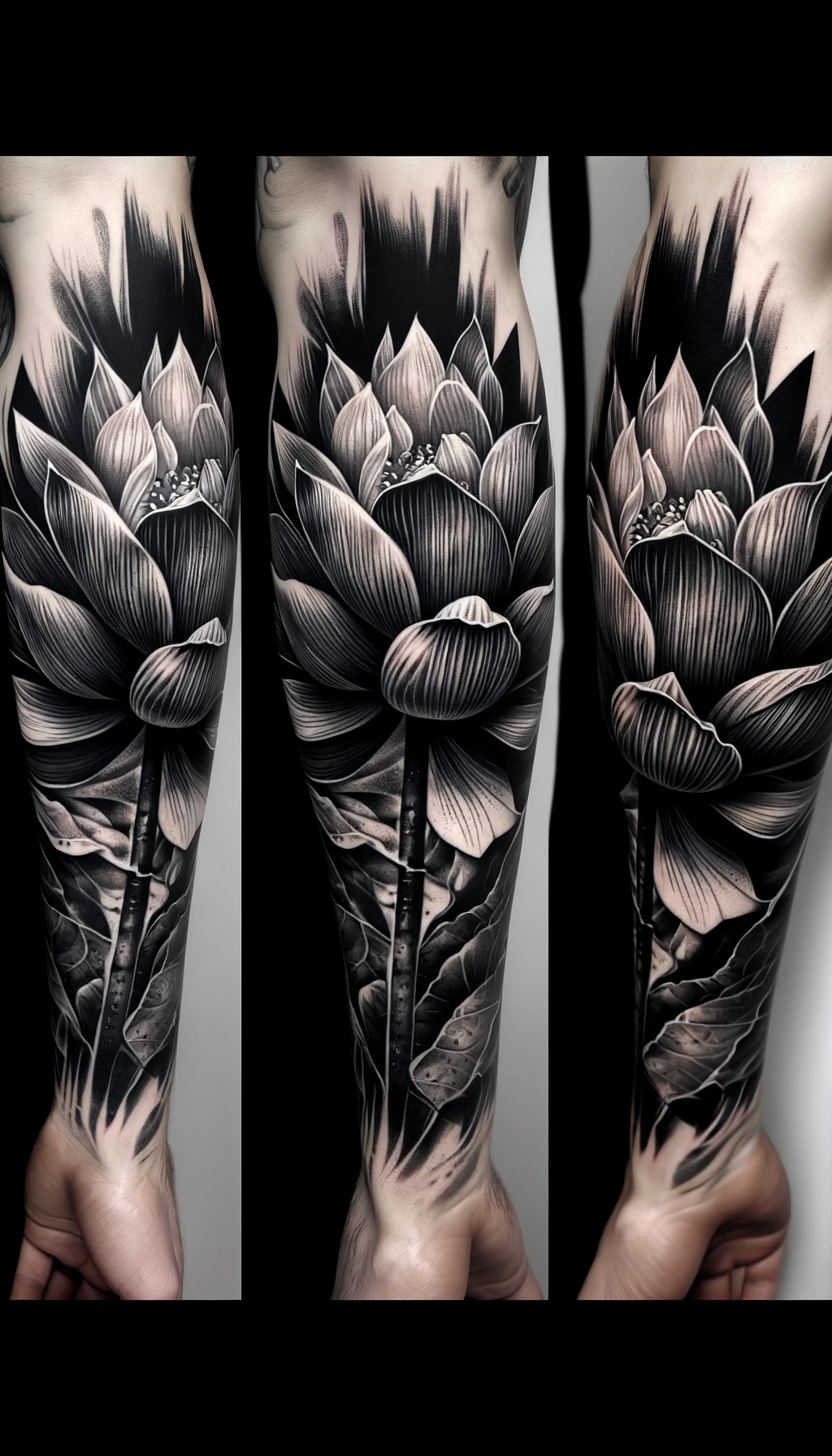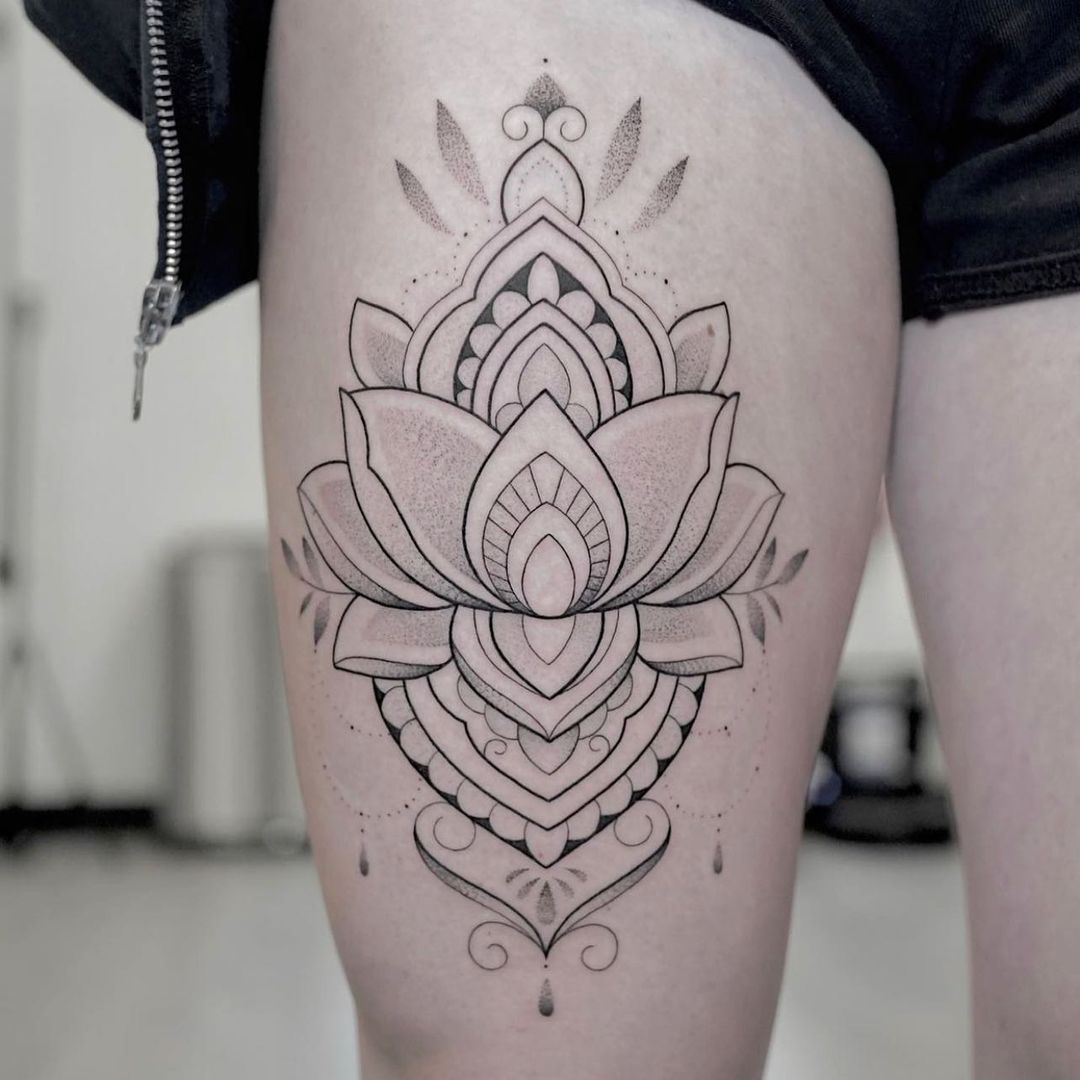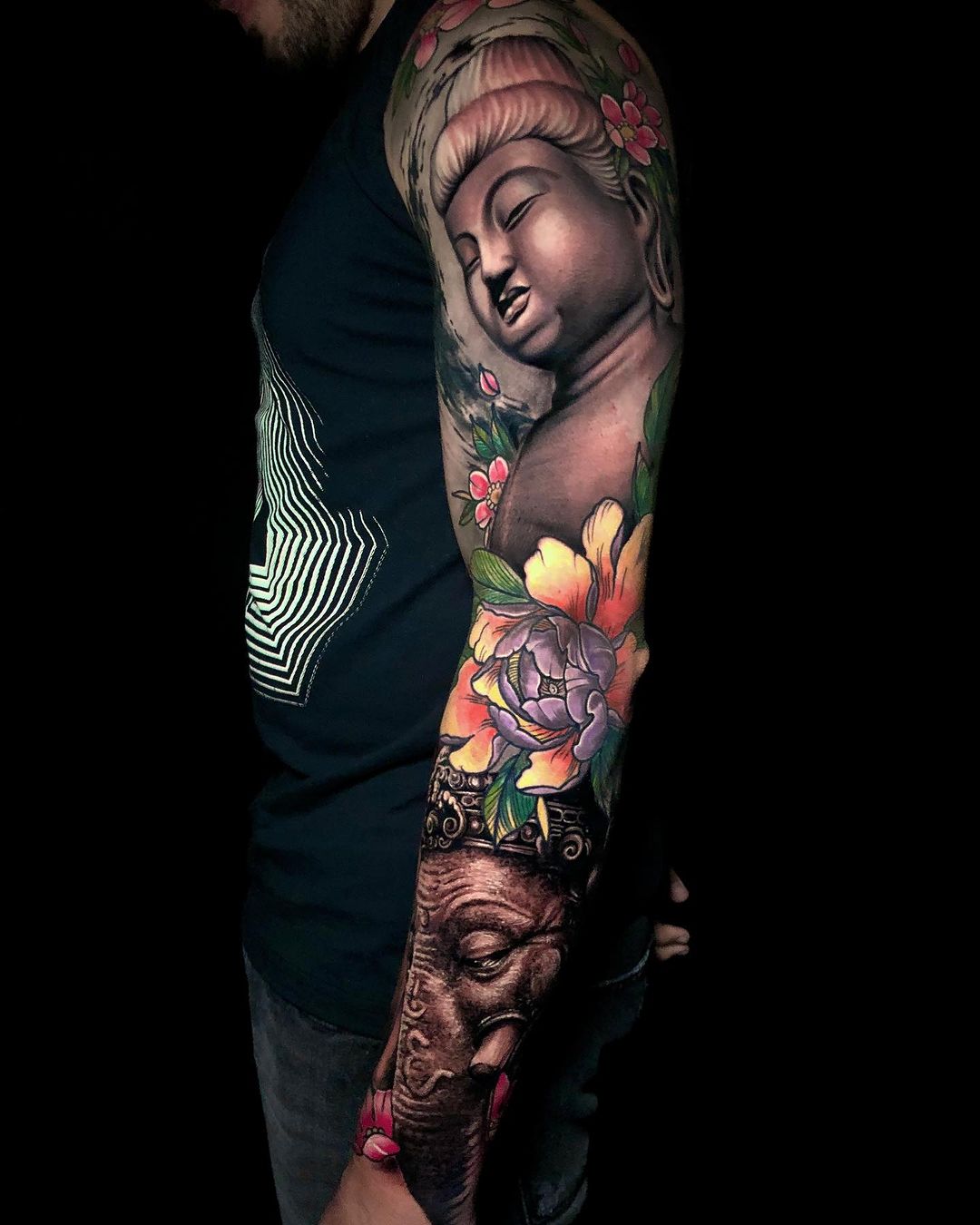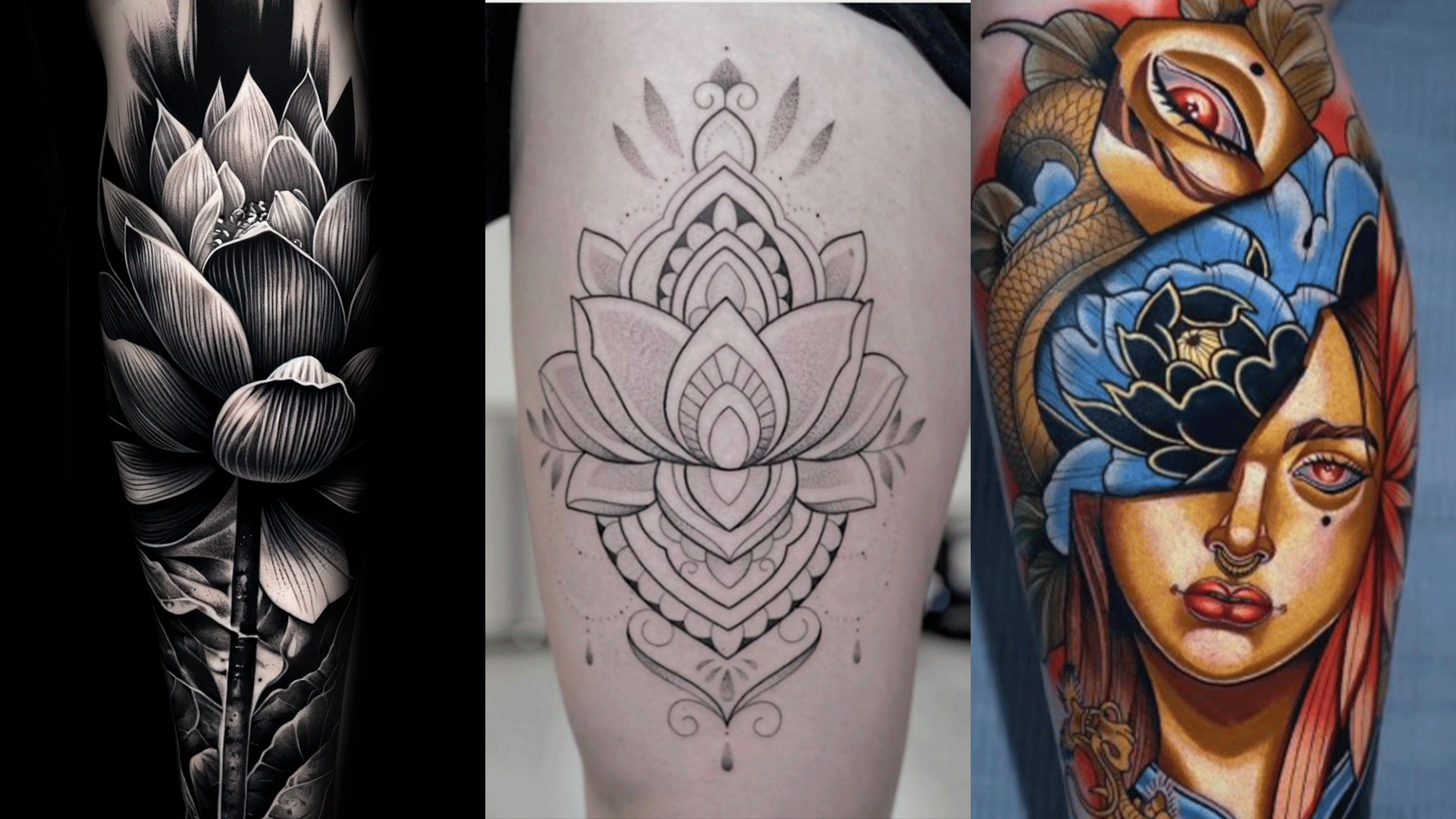In the vast tapestry of body art, few symbols carry the same depth and resonance as the lotus flower. Beyond its aesthetic allure, the lotus is a canvas of symbolism, encapsulating profound meanings that transcend cultural boundaries. In this exploration, we’ll delve into the rich tapestry of significance woven into lotus tattoos, unlocking the hidden messages beneath the ink.

At its heart, a lotus tattoo is a visual ode to resilience and triumph over adversity. Just as the lotus rises untarnished from murky waters, individuals choosing this symbol echo a narrative of strength and renewal. The very act of getting a lotus tattoo is an affirmation of overcoming challenges and embracing the beauty that can bloom from the metaphorical mud of life.

In Eastern cultures, especially in Hinduism and Buddhism, the lotus holds sacred significance. Its unfolding petals symbolize spiritual awakening, making a lotus tattoo a bridge to a deeper connection with one’s spiritual self. It’s not merely ink on skin; it’s a personal journey towards enlightenment.

Beyond Eastern borders, the allure of the lotus transcends cultural divides. The lotus flower tattoo meaning extends beyond geographical boundaries, becoming a universal language of beauty, growth, and transformation.
The choice of color in a lotus tattoo is akin to choosing a language for personal expression. A pink lotus signifies purity and spiritual fulfillment, while a blue lotus delves into the realms of wisdom and understanding life’s intricacies. Each shade becomes a brushstroke, contributing to the unique canvas of the wearer.
In the tapestry of body art, a lotus tattoo stands as a vibrant thread, weaving together stories of triumph, spirituality, and personal evolution. It is not just an aesthetic choice; it’s a profound statement etched in ink, inviting others to witness the blooming tales behind each delicate petal.
As you navigate the vast world of tattoo symbolism, consider the lotus—a timeless emblem that speaks volumes with its simplicity, yet echoes with the complexity of the human experience.

